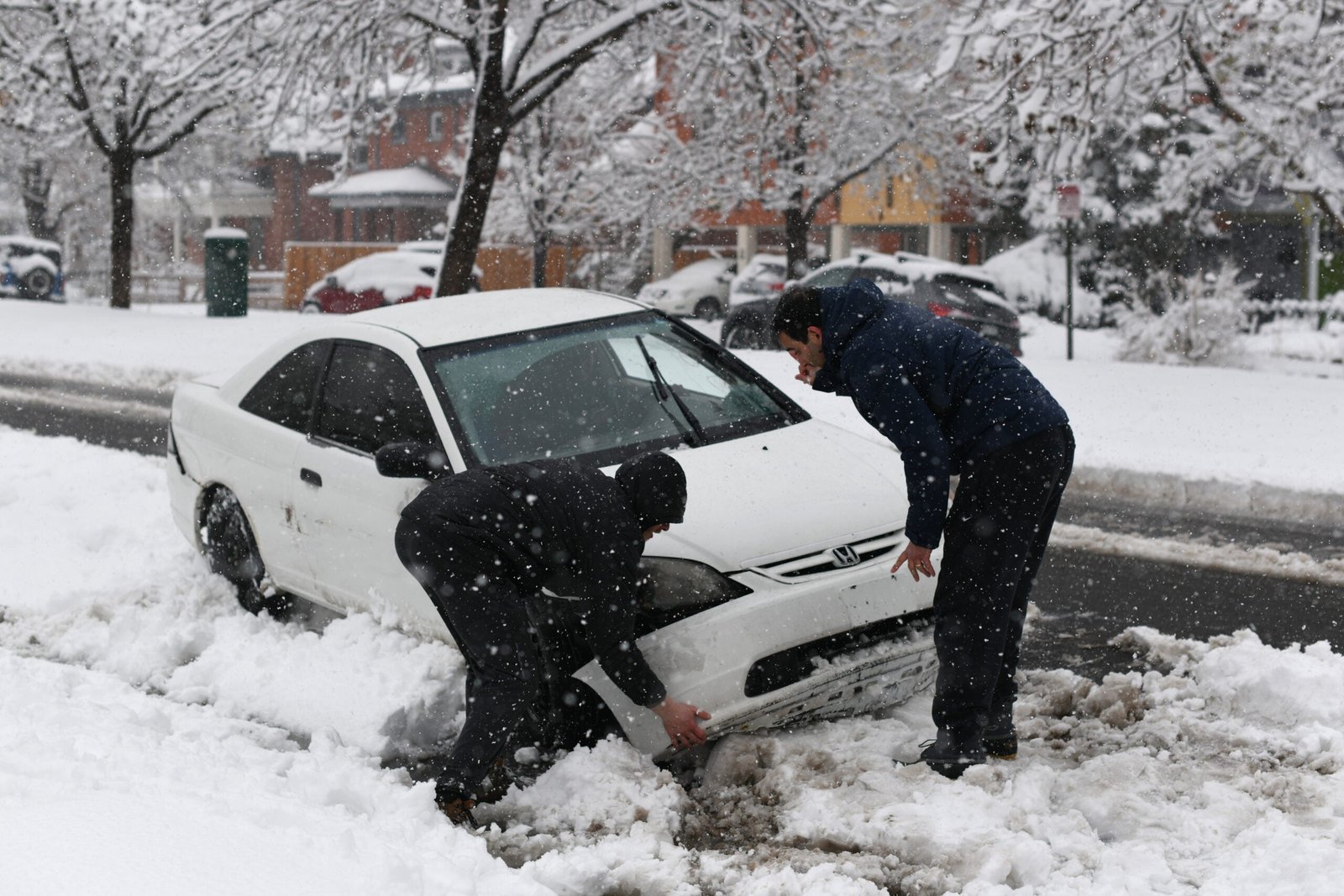Travelers flying through the Mile High City are in for a rough Thursday. Hundreds of flights to and from Denver were canceled outright by midday, with dozens more delayed, as the biggest storm in at least three years worked its way across Colorado.
The storm was forecasted to have an extremely tight gradient of accumulation. This means there could be big differences in snowfall totals across small areas, even just a few miles. Denver, which was expected to sit at the edge of the heaviest gradient, was expected to see 6-10 inches of snow Thursday into Friday, according to Accuweather; areas to the west and south of the city could see 1-3 feet.
By noon local time, just more than 800 flights to and from Denver International Airport (DEN) had been canceled, according to FlightAware — roughly 40% of the airport’s scheduled operations for the day. Southwest was the most heavily affected airline, with 378 cancellations across its network, or 8% of its total schedule, mostly for flights touching Denver. The airport is one of Southwest’s biggest focus cities. Frontier and United, which also have a heavy presence in Denver, also had many cancellations. Frontier axed 126 flights (19%), and United canceled 90 (3%) of its mainline-operated flights.
SkyWest — a regional airline that flies smaller routes on behalf of United, as well as American Airlines, Delta Air Lines and Alaska Airlines — canceled 219 flights, or 11% of its operation. Most of these were scheduled to fly to or from Denver. SkyWest was scheduled to fly 258 Denver flights for United on Thursday and four for American Airlines, according to data from Cirium.
In late 2022, Southwest suffered a multi-day operational meltdown during the holidays after becoming overwhelmed by a severe winter storm across much of the country. Its operation at Denver was severely affected, which was one of the major drivers of the collapse, even as other airlines recovered. Since then, Southwest has touted improvements it has made to its Denver winter operations specifically; it also shared improvements regarding its broader approach to keeping the rest of its network patent when there’s a major disruption.
Since the meltdown, Southwest’s improvements seem to have helped the airline bounce back after disruptions due to weather or other issues. However, Thursday’s storm will be the first real test of the resiliency it’s worked into the Denver operation. So, all eyes will be on Southwest and the Mile High City as the snow tapers off.
Denver International Airport (DEN) is the gateway to the Rocky Mountains and the surrounding region, making it a crucial hub for both business and leisure travelers. The airport is known for its unique architecture, featuring a tent-like roof that resembles the snow-capped mountains in the distance. With over 64 million passengers passing through its gates each year, DEN is one of the busiest airports in the United States.
Despite its busy schedule, Denver International Airport is no stranger to severe weather. Located on the high plains of Colorado, the airport is prone to heavy snowstorms and strong winds, especially during the winter months. The airport has a dedicated snow removal team that works around the clock to keep the runways clear and ensure the safety of passengers and crew.
The recent snowstorm that hit Denver was particularly severe, with forecasters predicting up to 3 feet of snow in some areas. The tight gradient of accumulation meant that even small differences in location could result in vastly different snowfall totals. Denver was on the edge of the heaviest snowfall, with 6-10 inches expected in the city itself. However, areas to the west and south could see much higher totals, making travel in and out of the city extremely difficult.
The impact of the storm on air travel was immediate and widespread. By midday, over 800 flights to and from Denver had been canceled, representing 40% of the airport’s scheduled operations for the day. Southwest Airlines, one of the largest carriers at DEN, was hit particularly hard, with 378 cancellations across its network. Frontier and United Airlines, which also have a significant presence in Denver, were forced to cancel many flights as well.
SkyWest, a regional airline that operates flights for United, American, Delta, and Alaska Airlines, also saw a high number of cancellations. The airline canceled 219 flights, most of which were scheduled to fly to or from Denver. This disruption in service is not only frustrating for passengers but also has a significant financial impact on the airlines involved.
The snowstorm in Denver is just the latest in a series of weather-related challenges that airlines have faced in recent years. Severe storms, hurricanes, and other natural disasters have caused widespread disruptions to air travel, leading to significant financial losses for the industry. In response, airlines have invested in new technologies and procedures to improve their ability to respond to these challenges and minimize the impact on passengers.
Southwest Airlines, in particular, has made significant improvements to its operations in Denver following a major meltdown during the holidays in 2022. The airline has worked to enhance its winter weather protocols and communication systems to better handle disruptions caused by severe weather. These improvements have helped Southwest recover more quickly from weather-related disruptions and minimize the impact on its passengers.
As the snowstorm in Denver begins to taper off, all eyes will be on the airlines and airport staff as they work to recover from the disruption and get flights back on schedule. Passengers are advised to check with their airlines for the latest information on flight delays and cancellations and to allow extra time for travel to and from the airport. Despite the challenges posed by severe weather, the aviation industry remains committed to ensuring the safety and comfort of passengers as they travel through the Mile High City.

